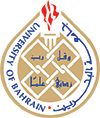Tracks
Quantitative and qualitative research related to Islamic Business and Finance is invited, covering a range of themes including but not limited:
Fintech and Islamic Finance:
Digital banking, mobile wallets, robo-advisors, crowdfunding platforms, peer-to-peer lending, blockchain applications in Islamic finance, smart contracts, regtech, sup tech, and the impact of open banking on Islamic financial institutions.
Blockchain and Cryptocurrencies in the Context of Islamic Principles:
Sharia compliance of cryptocurrencies, decentralized finance and its potential within Islamic finance, tokenization of assets, the use of blockchain for supply chain finance and traceability (especially relevant for Halal products), Central Bank Digital Currencies and their implications for Islamic finance, and the challenges and opportunities of distributed ledger technology.
Digital Transformation of Islamic Financial Institutions:
Digital strategies for Islamic banks and other financial institutions, cybersecurity in Islamic finance, data analytics and AI for personalized financial services, cloud computing and its impact on Islamic finance, the role of technology in enhancing financial inclusion, and the development of digital talent within the Islamic finance industry.
Ethics, Governance, and Regulation in the Digital Islamic Finance Ecosystem:
Ethical frameworks for AI and machine learning in Islamic finance, data privacy and security, regulatory sandboxes for fintech innovation, consumer protection in the digital age, Sharia governance for digital financial products and services, international regulatory cooperation in Islamic fintech, and the role of Islamic scholars in shaping the future of digital Islamic finance.
Sustainable Finance and the Digital Economy:
The role of fintech in promoting sustainable and responsible investment in line with Islamic principles (ESG), impact investing and its measurement using digital tools, green finance and the development of sustainable Sukuk, the use of technology to enhance transparency and accountability in Islamic finance, and the contribution of digital Islamic finance to achieving the UN Sustainable Development Goals (SDGs).
Financial Inclusion and the Digital Divide:
Using technology to reach underserved communities and promote financial inclusion, the challenges of bridging the digital divide, the role of Islamic microfinance in the digital age, mobile money and its potential for expanding access to Islamic financial services, and the use of technology to empower women and other marginalized groups.
The Future of Islamic Finance in the Metaverse and Web 3.0:
Exploring the potential of the Metaverse and Web 3.0 for Islamic finance, NFTs and their applications in Islamic art and culture, decentralized autonomous organizations (DAOs) and their implications for Islamic governance, and the ethical considerations of operating in virtual worlds.
Sustainable Business Models:
Examining practices that promote sustainability and ethical considerations within Islamic economic frameworks.
Digital Transformation in Financial Services
Impact of fintech, blockchain, and digital currencies on traditional finance and Islamic banking.
Ethics and Governance:
Addressing ethical dilemmas and governance structures in Islamic finance and broader business contexts.
Marketing Strategies for Islamic Financial Products:
Effective marketing techniques for promoting Islamic financial services in a digital economy.
Financial Inclusion:
Strategies for enhancing access to financial services for underserved communities through Islamic finance.
Impact of Regulatory Frameworks on Islamic Finance:
Analyzing the role of regulation and compliance in the growth and stability of Islamic financial institutions.
Corporate Social Responsibility and Ethical Investment:
The role of CSR in Islamic finance and its impact on sustainable development goals (SDGs).
